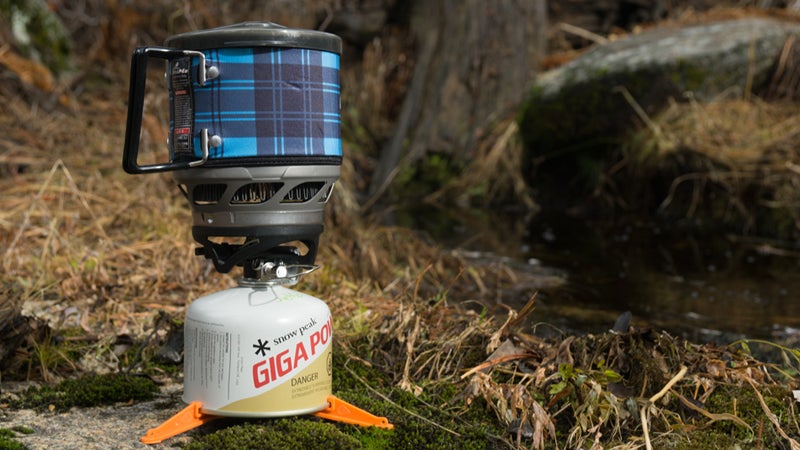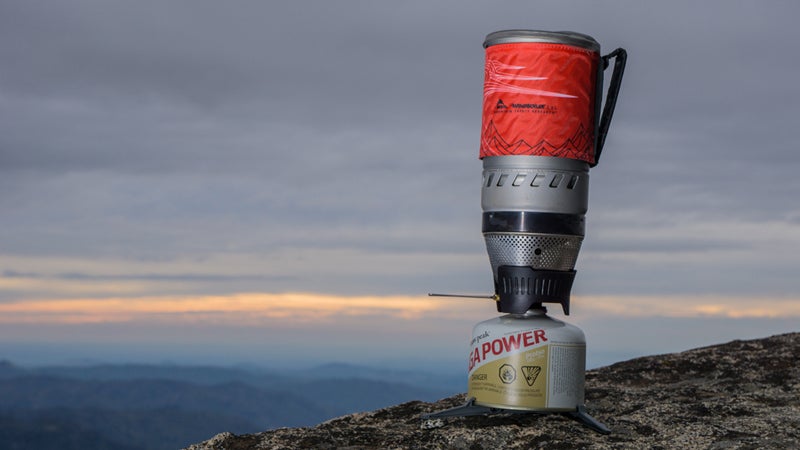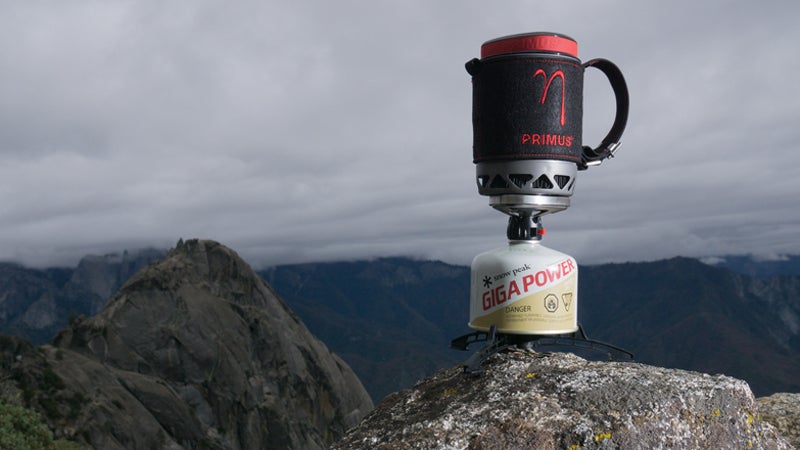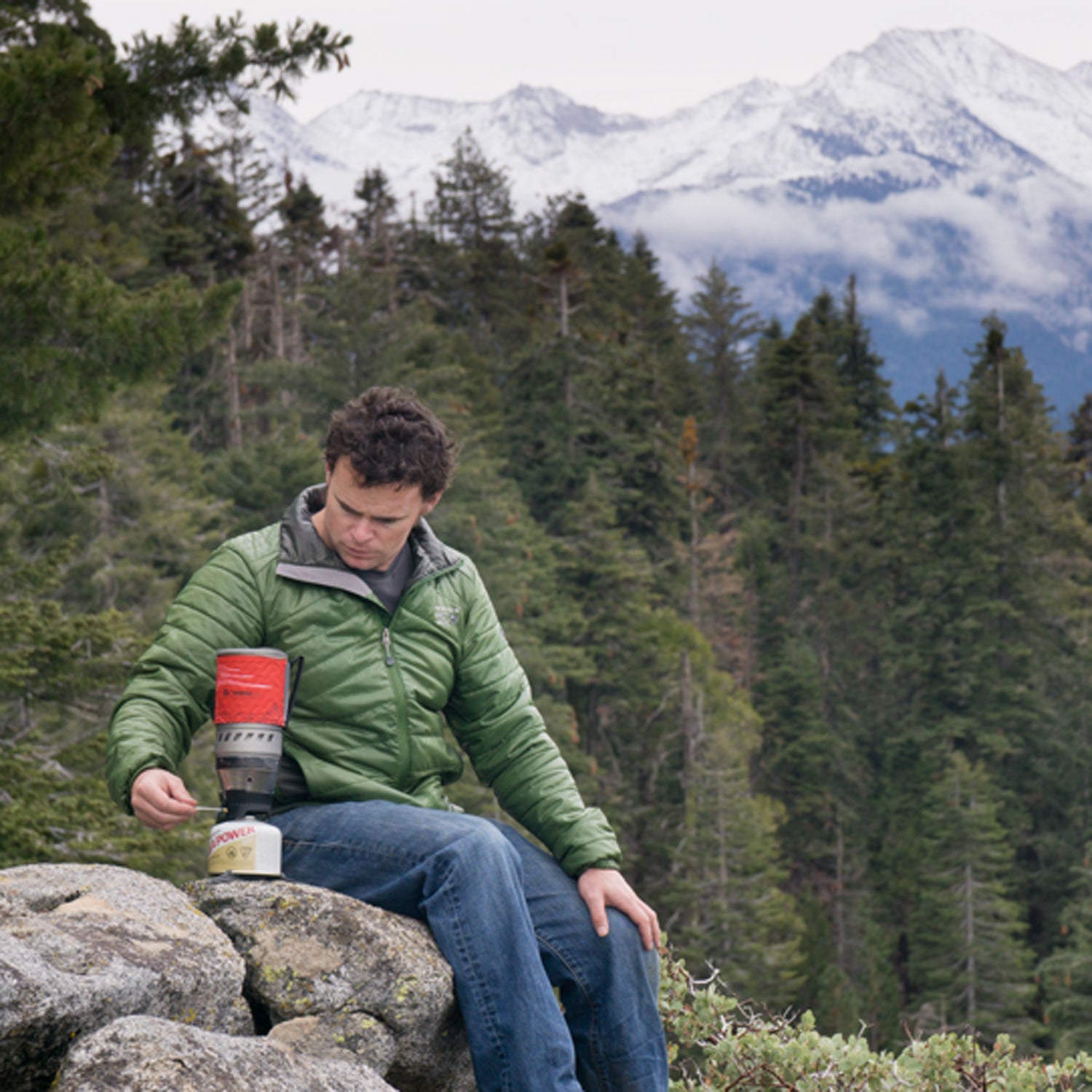In 2001, Jetboil founders Perry Dowst and Dwight Aspinwall revolutionized backcountry cooking when they created a stove designed simply to boil water—very, very efficiently. I’ve used a Jetboil as my backpacking stove for years. When you’re cooking just freeze-dried food, ramen, and coffee, you don’t need anything else.
Over the past 14 years, other companies have developed their own hyperefficient water boilers. But do any come close to the original?
To find out, we pitted three lightweight stoves in a head-to-head competition—and we enlisted the help of Darin McQuoid, Dagger-sponsored professional kayaker and outdoor photographer. He tested these stoves in heavy winds, boiling water in almost every imaginable scenario until they ran out of gas. He also weighed the cookers with all the parts you’d pack for a backpacking trip, such as the lid, insulation, and canister support.
Here are his results:
Jetboil MiniMo ($130)

Manufacturer’s Claimed Weight: 14.6 ounces
Tested Weight: 16 ounces
Time to Rolling Boil: .5 liter in 2 minutes
Pot Insulation: 140-degree water after sitting 45 minutes
The Verdict: In calm conditions, the Jetboil MiniMo boiled water the fastest of the three systems McQuoid tested, but it struggled in windy conditions with 20 mph gusts. (More on that in a bit.) He also found it easy to taper a rolling boil down to a simmer with the MiniMo—this wasn’t an option with the Windboiler and was tricky with the ETA.
Plus, the MiniMo is packed with smart design features, including a skirt cover that doubles as a measuring cup and rubberized ergonomic handles. Thanks to its short, wide pot, the MiniMo was also the easiest to eat from.
Although McQuoid gave the MiniMo points for best overall design, he didn’t like the pot-to-burner attachment, which had a tendency to stick. “When attempting to remove the cook pot, it tends to get stuck and takes some pulling to separate,” says McQuoid.
MSR Windboiler ($130)

Manufacturer’s Claimed Weight: 15.25 ounces
Tested Weight: 16.6 ounces
Time to Rolling Boil: .5 liter in 2 minutes, 15 seconds
Pot Insulation: 150-degree water after sitting 45 minutes
The Verdict: The MSR Windboiler works much better in windy conditions than either the MiniMo or the ETA. “In strong winds with no cover, the MSR still reached a rolling boil in three minutes, while the other two failed to achieve a rolling boil at all,” says McQuoid.
Even with some protection (McQuoid used his hand as a wind shield for the second test), the MiniMo and ETA needed five minutes to boil the water—two minutes slower than the Windboiler.
The Windboiler’s cook pot was the easiest to remove from the burner. McQuoid’s only gripe: The stove doesn’t come with a built-in igniter, although this means there’s just one less component to break in the field.
Primus ETA Lite ($105)

Manufacturer’s Claimed Weight: 14.1 ounces
Tested Weight: 14.8 ounces
Time to Rolling Boil: .5 liter in 2 minutes, 15 seconds
Pot Insulation: 160-degree water after sitting 45 minutes
The Verdict: The Primus ETA Lite is both the lightest and the quietest stove on this list. McQuoid also preferred its lid system to any other he tested—instead of sealing like Tupperware, the ETA’s lid sits low on the pot, making it easy to take on and off with one hand.
Like the MiniMo, the ETA didn’t work as well in windy conditions: The stove needed five minutes to boil water—two minutes slower than the Windboiler.
Although the ETA comes with spacers that allow for simmering, McQuoid found them onerous to install and remove. But his biggest issue with the stove was that when it was filled to the half-liter capacity, the flame was doused every time the water boiled.


